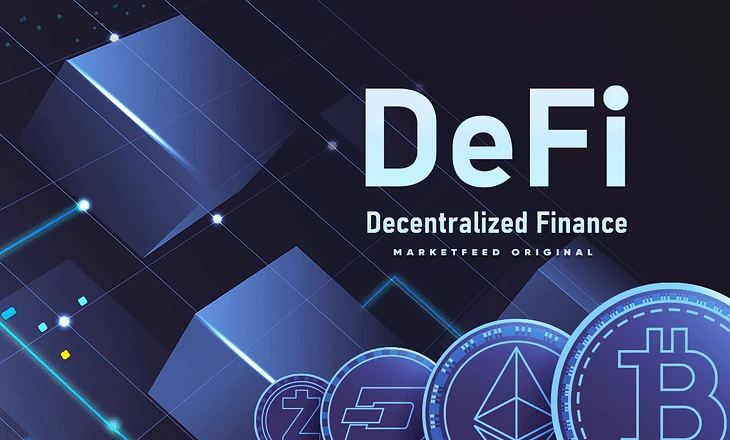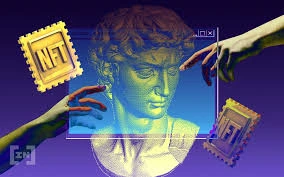5 Web3 Future Industries That Might Actually Change Everything
Let’s get one thing straight: Web3 isn’t dead. It’s just misunderstood. The hype cycle did its damage—too many buzzwords, too little substance—but behind the memes and market crashes, real innovation is still happening. You just have to look in the right places. Web3 future industries aren’t just a continuation of crypto; they’re a reaction to everything broken about our current digital systems. Data monopolies. Outdated finance. Rent-seeking intermediaries. And yeah, a general sense that maybe we deserve better from the internet.
So here it is: five areas where Web3 future industries aren’t just surviving—it’s building a new foundation. Not all of them will succeed. But the ones that do? They’ll redefine the game.
1. Web3 Future Industries : Decentralized Finance (DeFi) — Not Dead, Just Wiser
Look, I get it. DeFi blew up in 2020–2021 and then promptly scared everyone off with hacks, rug pulls, and 300% APYs that made zero sense. But if you’ve written it off entirely, you’re not paying attention.
DeFi today is quieter, smarter, and (gasp) starting to resemble a real financial system. One that doesn’t care where you were born or whether you have a bank account. Lending, trading, insurance—all reimagined without the friction.
Will regulation crack down? Absolutely. But that’s part of growing up. Traditional finance isn’t shaking in its boots yet—but it should be watching closely.


2. Web3 Future Industries : Healthcare in Web3 — A Long Shot, But Worth It
This one might feel out of left field, but hear me out. Healthcare is bloated, opaque, and deeply siloed. Web3, for all its flaws, thrives on openness and user control—two things medicine desperately needs.
We’re starting to see platforms that give patients ownership over their data. Imagine securely sharing your medical history with any doctor in the world, on your terms. Or earning tokens for contributing anonymized data to cancer research.
It’s early. It’s clunky. But it’s also one of the most meaningful use cases out there. If we want tech to do more than make us scroll faster, this is where it starts.


3. Decentralized Social Media — Because the Status Quo Is Broken
Let’s be real: Twitter (or whatever we’re calling it now) is a mess. Facebook is a data vacuum. TikTok is… well, addictive. What all these platforms have in common? Control. You don’t own your content, your following, or even your online identity.
Enter Web3-native social protocols like Lens, Farcaster, and Bluesky. They’re not perfect—some barely have functional apps—but the ethos matters. No more algorithm gods. No more platform lock-in. Just people, content, and actual ownership.
Skeptical? Good. But if you’ve ever complained about Big Tech’s power, these projects are putting their code where their mouth is.


4. Gaming and Digital Assets — Where Mass Adoption Will Happen First
If you want to see where Web3 breaks into the mainstream, look at gaming. Not because gamers love buzzwords (they don’t), but because they already get digital ownership.
In a Web3 game, your sword isn’t just pixels—it’s an asset. You can sell it, trade it, or use it across multiple games. That’s huge. And it flips the whole developer-player relationship on its head.
Illuvium, Star Atlas, Big Time—these aren’t just games; they’re economies in disguise. Still early, sure. But if you think NFTs are just art, you’re missing the bigger play.


5. DAOs — A New Way to Work? Or Just Group Chats with Bank Accounts?
DAOs are tricky. On paper, they’re revolutionary—decentralized orgs with shared ownership and no hierarchy. In practice? Sometimes it’s a mess of Discord notifications and endless voting.
But here’s the thing: people are figuring it out. From investment collectives like PleasrDAO to creators funding projects without middlemen, DAOs are testing the limits of coordination in a digital-first world.
Not all will last. Some shouldn’t. But DAOs are asking questions traditional companies won’t touch: What if work wasn’t a job? What if leadership was earned in real-time? That’s worth exploring.
Final Thoughts: Web3 Isn’t a Fad—It’s a Rebellion
Here’s the truth: Web3 future industries are trying to fix stuff we’ve all complained about for years. Broken banks. Centralized platforms. Exploitative systems. The tools are new, but the frustration is old.
Will every idea pan out? Of course not. Some of this is vapor. But under the noise, real progress is being made. And if even one of these industries cracks the code, it won’t just be a tech story—it’ll be a cultural shift.
So yeah, Web3’s messy. But so was the early internet. And if you ask me, the risk of missing what comes next is bigger than the risk of getting in early.
Relevant Link : Here




